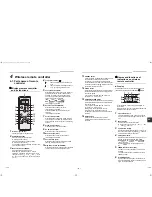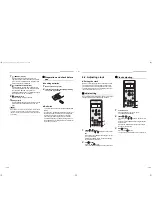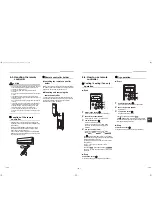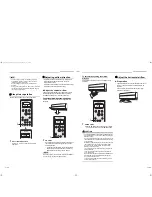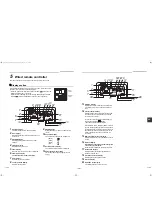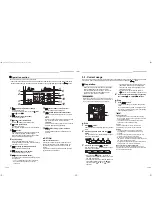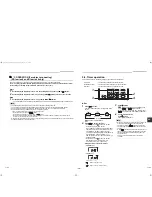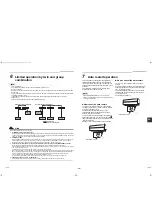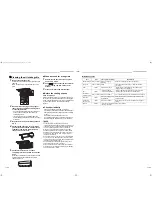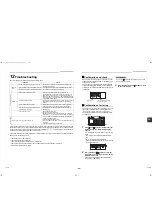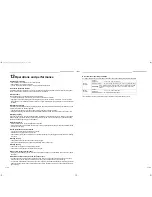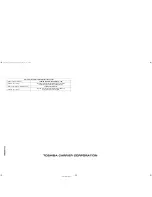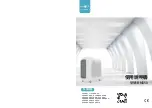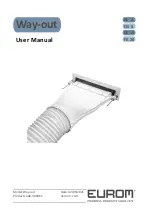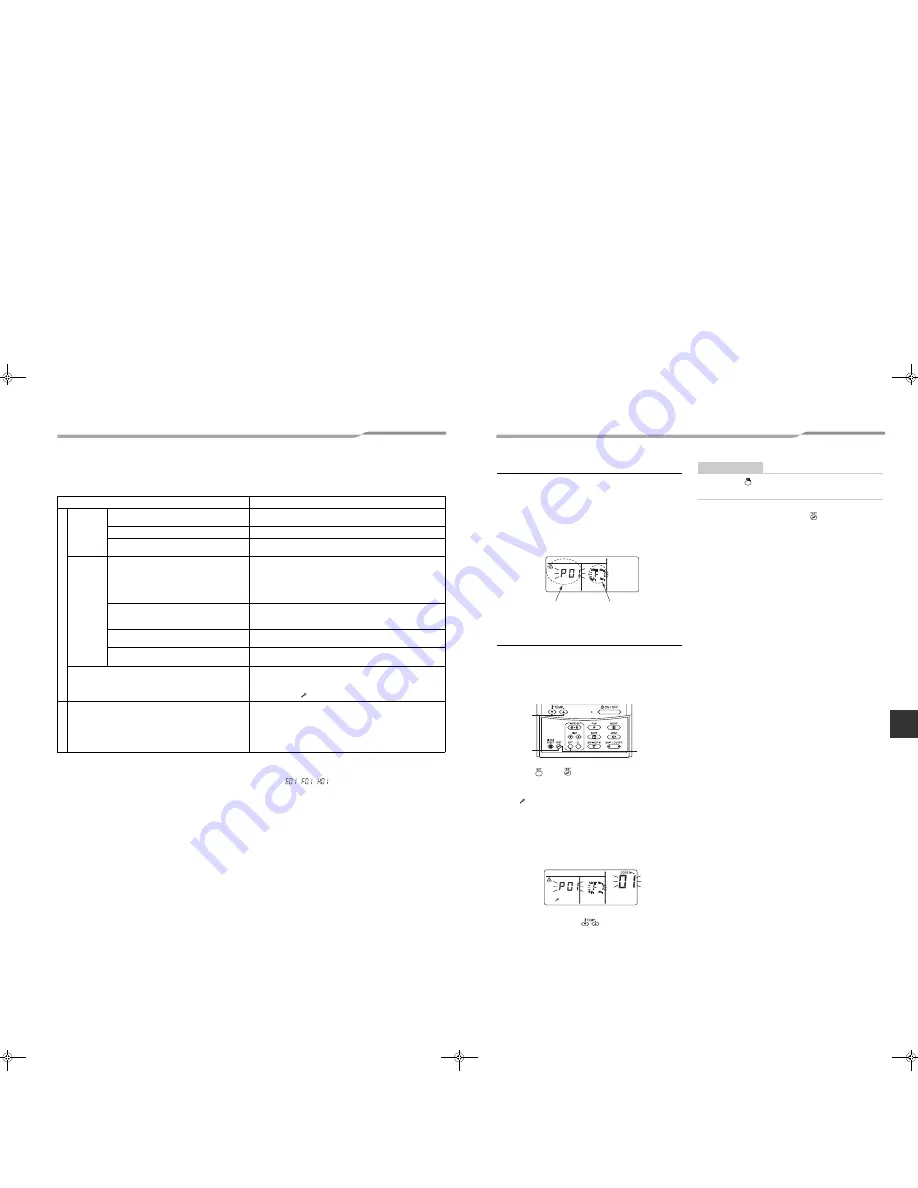
– 20 –
EN
12
Troubleshooting
Check the points described below before requesting repair.
If there is something unusual even after checking the above, stop running the unit, turn off the circuit breaker, and
inform the dealer where you purchased the product of the product number and symptom. Do not attempt to repair
the unit by yourself as doing so is dangerous. If the check indicator (
,
,
) is displayed on the wired remote
controller LCD, inform the dealer of its content as well.
If any of the following occur, stop running the unit immediately, turn off the circuit breaker, and contact the dealer
where you purchased the product.
• The switch does not work properly.
• The circuit breaker often blows out.
• You unintentionally put a foreign object or water inside.
• The unit cannot be run even after the cause of the protective device activation is removed.
• Other unusual conditions are found.
Symptom
Cause
It is
not a
m
al
functi
o
n.
Outdoor
unit
• White, misty, cold air or water comes out
• The fan of the outdoor unit is automatically stopped and
defrosting is performed.
• Sometimes the noise of air leaking is heard. • The solenoid valve works when defrosting starts or stops.
• A noise is heard when the power is turned
on.
• The outdoor unit is preparing for running.
Indoor unit
• Sometimes a swishing is heard.
• When the unit starts running, during operation, or
immediately after the unit stops running, a sound such as
water flowing may be heard, or the operation sound may
become louder for a couple of minutes immediately after the
unit starts running. This is the sound of the refrigerant flowing
or the dehumidifier draining.
• A clacking sound is heard.
• This is a sound generated when the heat exchanger or other
part expands and contracts slightly due to temperature
change.
• Discharged air smells unusual.
• Various smells from the walls, carpet, clothes, cigarette,
cosmetics or other things adhere to the air conditioner.
• The fan continues running even after the
unit operation is stopped.
• The fan keeps running to self clean the heat exchanger
during drying.
• The unit does not run
• Has a blackout occurred?
• Has the circuit breaker blown?
• Has the protective device been activated? (The operation
indicator and
on the wired remote controller are blinking.)
Check again.
The room does not cool down or warm up.
• Is the air intake or discharge of the outdoor unit clogged?
• Is a door or window open?
• Is the air filter clogged with dust?
• Is the air volume set to “LOW”? or is the operation mode set
to “FAN”?
• Is the setup temperature appropriate?
Confirmation and check
When an error occurred in the air conditioner, an error
code and indoor UNIT No. appear on the display part
of the remote controller.
The error code is only displayed during the operation.
If the display disappears, operate the air conditioner
according to the following “Confirmation of error log” for
confirmation.
Confirmation of error log
When an error occurred on the air conditioner, the error
log can be confirmed with the following procedure.
(The error log is stored in memory up to 4 errors.)
The log can be confirmed from both operating status
and stop status.
1
Push
and
buttons simultaneously for
4 seconds or more, the following display
appears.
If is displayed, the mode enters in the error log
mode.
• [
01
: Order of error log] is displayed in CODE
No..
• [Error code] is displayed in CHECK.
• [Indoor unit address in which an error occurred]
is displayed in Unit No..
2
Every pushing of
button used to set
temperature, the error log stored in memory
is displayed in order.
The numbers in CODE No. indicate CODE No.
[
01
] (latest)
→
[
04
] (oldest).
REQUIREMENT
Do not push
button because all the error log of the
indoor unit will be deleted.
3
After confirmation, push
button to return
to the usual display.
Error code
Indoor UNIT No. in which
an error occurred
3
2
1
39-EN
40-EN
+001111055901_01EN.book Page 20 Monday, September 5, 2011 2:23 PM

